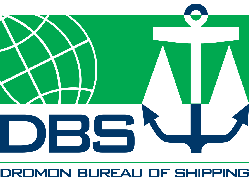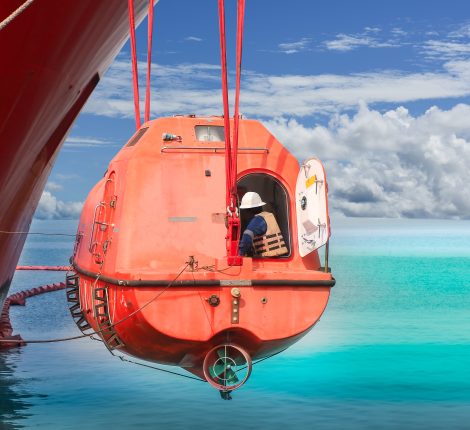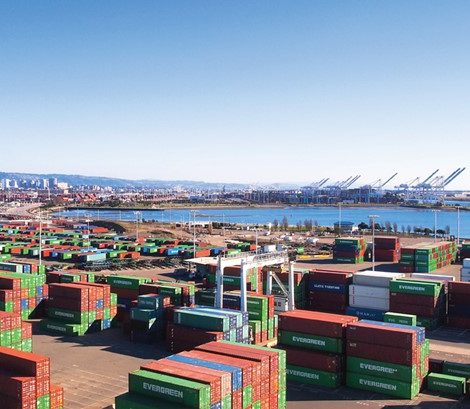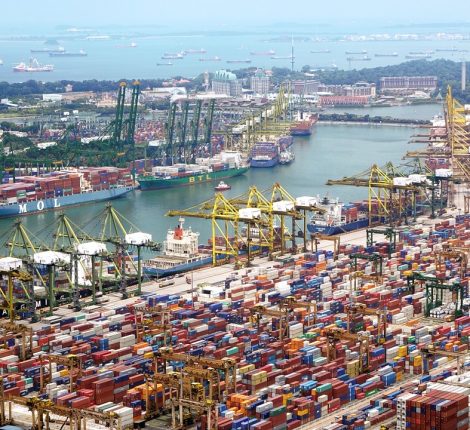- June 30, 2023
- 2023 , Circulars
- Comments : 0
Outcomes from the IMO Maritime Safety Committee 107th Session
C23029 | 26 June 2023
Notice to: Ship Owners/ Managers/ Operators/ Surveyors/ Auditors
This circular is issued to advise the outcomes of the 107th session of the IMO Maritime Safety Committee (MSC), which was held from 31st May – 9th June 2023.
The meeting adopted:
- new mandatory requirements for onboard lifting appliances and anchor handling winches
- SOLAS amendments prohibiting the use of perfluorooctane sulfonic acid (PFOS) in firefighting foams SOLAS amendments mandating electronic inclinometers for containerships and bulk carriers
- mandatory navigation and voyage planning requirements for non-SOLAS ships operating in polar waters
- new mandatory requirements for ventilation of totally enclosed lifeboats
- STCW amendments accommodating the use of electronic certificates and documents for seafarers
The meeting also approved:
- new Code of Safety for Diving Systems, 2023
- interim guidelines for the safety of ships using LPG fuels interim guidelines for the safe operation of onshore power supply
- draft amendments to extend the SOLAS requirements for emergency towing devices to all new
- ships over 20,000 GT
- SOLAS amendments and related instruments to enhance the fire safety of ro-ro passenger ships
Summary
New instruments / amendments adopted:
a) SOLAS Chapter II-1, – requirements on lifting appliances and anchor handling winches.
b) SOLAS Chapter II-2, – prohibition on the use of fire extinguishing media containing Perfluoro-octane sulphonic acid (PFOS).
c) SOLAS Chapter XIV – the inclusion of some categories of non-SOLAS vessels.
d) 1994 and 2000 HSC Codes – prohibition on the use of fire extinguishing media containing Perfluoro-octane sulphonic acid (PFOS) and the Form of Safety Certificate for High-Speed Craft.
e) Polar Code –inclusion of fishing vessels within the scope of the code
f) IMSBC Code – amendments to the IMSBC Code
g) 1978 and 1988 SOLAS Protocols – amendments to the Form of Safety Certificates for Cargo Ships
h) STCW Convention and STCW Code – amendments regarding the consideration of requirements for the use of Electronic Certificates.
Decisions were taken by the Committee regarding:
a) Development of a goal-based instrument for Maritime Autonomous Surface Ships (MASS).
b) Development of further measures to enhance the safety of ship relating to the use of fuel oil.
c) Carriage of Cargo and Containers.
d) Ship Systems & Equipment.
e) Navigation, Communications, Search and Rescue.
f) Work Programme.
SOLAS Chapter II-1
Regulation 2 has been amended in relation to Onboard Lifting Appliances and Anchor Handling Winches.
A new regulation, 3-13 requires relevant onboard lifting appliance and anchor handling winches to be designed, constructed, and installed in accordance with Classification Society rules, or equivalent accepted by the flag Administration. Associated guidelines for lifting appliances and for anchor handling winches were also approved.
The amendments enter into force from 1 January 2026.
Non-certified existing lifting appliances, installed prior to entry into force of the new Regulations, are required to be tested and thoroughly examined no later than the date of the first renewal survey on or after 1 January 2026.
SOLAS Chapter II-2
Under resolution MSC.530(107), amendments regarding prohibition of use of media containing perfluoro-sulfonic acid in fire-extinguishing media were adopted. These amendments relate to Regulations 2 and 10. They enter into force from 1 January 2026.
Existing ships must comply with the new requirement no later than the date of the first survey after 1 January 2026.
SOLAS Chapter V and the Appendix, 1978 & 1988 Protocols
Under resolutions MSC.530(107), MSC.531(107) and MSC.532(107) amendments regarding installation of electronic inclinometers onboard Bulk Carriers and Containerships of gross tonnage 3000 and above were adopted.
These amendments relate to SOLAS Chapter V, Regulations 2, 18 and 19, and the 1978 and 1988 Protocols. The amendments enter into force from 1 January 2026.
The requirements are not applicable to cargo ships occasionally carrying cargo in bulk and general cargo ships carrying containers on deck.
SOLAS Chapter XIV
Under resolution MSC.530(107), amendments confirming the application of safety measures to non-SOLAS ships were adopted. These measures apply to ships:
- operating in polar waters (cargo ships (from 300-500 GT)),
- fishing vessels of L>24m and
- pleasure yachts (≥ 300 GT and not engaged in trade).
The amendments enter into force from 1 January 2026.
Existing non-SOLAS ships operating in polar waters constructed before 1 January 2026 must meet the relevant requirements of Chapters 9-1 and 11-1 of the Polar Code by 1 January 2027.
LSA Code
Under resolution MSC.533(107), amendments to Chapter IV regarding ventilation requirements for totally enclosed lifeboats were adopted. A ventilation rate of at least 5 cbm/hr/person should be provided to prevent high CO2 concentrations inside the lifeboat. The amendments enter into force from 1 January 2026.
The amendments apply to totally enclosed lifeboats installed on or after 1 January 2029.
HSC Codes
Under resolutions MSC.534(107) and MSC.535(107), amendments to the 1994 and 2000 HSC Codes were adopted:
- prohibiting the use of perfluoro-octane sulfonic acid in fire-extinguishing media,
- amending the Form of High-Speed Craft Safety Certificates, and
- changes to the Record of Equipment pertaining to type of immersion suits were adopted.
Polar Code
Under resolution MSC.536(107) amendments to the Polar Code were adopted, regarding safety of non-SOLAS ships operating in polar waters, i.e:
- cargo ships from 300-500 GT
- fishing vessels of L>24m and
- pleasure yachts ≥ 300 GT and not engaged in trade.
New Chapters 9-1 and 11-1 give specific provisions for non-SOLAS ships.
The amendments enter into force from 1 January 2026.
IMSBC Code
Under resolution MSC.537(107) amendments to the IMSBC Code were adopted, entering into force from 1 January 2025.
STCW Convention
Under resolution MSC.539(107) and MSC.538(107), amendments regarding requirements for the use of certificates in electronic form were adopted. The amendments enter into force from 1 January 2025.
Goal based instrument for Maritime Autonomous Surface Ships (MASS)
A goal-based code for MASS is being developed at IMO, potentially entering into force as a mandatory code once experience with its application has been gained. The non-mandatory MASS Code is planned to be ready by 2025, with the mandatory code expected to enter into force by 1 January 2028. It was agreed in principle that the code would apply to SOLAS cargo ships. The decision on applicability of the Code to High-Speed Cargo crafts was postponed. It was agreed that the code should contain a risk-analysis-based approach.
The requirements of COLREGs will still be relevant and applicable, regardless of how a ship is operated (conventional or MASS), and there is no need to amend COLREGs to accommodate MASS at this stage.
The following timelines were agreed by the Committee:
a) Finalisation and adoption of the new non-mandatory MASS Code – MSC 109/ Dec 2024.
b) Commence development of the mandatory MASS Code, based on the nonmandatory Code, and consider amendments to SOLAS (new chapter) for the Code’s adoption – MSC 109/ Dec 2024.
c) Finalisation and approval of the mandatory MASS Code, draft SOLAS chapter and further development of consequential amendments to existing instruments – MSC 110 (1st half 2025).
d) Adoption of the new mandatory MASS Code and further development of consequential amendments to existing instruments – MSC 111 (1st half 2026).
Development of further measures to enhance the safety of Ships relating to use of Fuel Oil
Draft MSC-MEPC guidelines for sampling procedures were approved, harmonizing the existing regime for control of fuel oil suppliers under MARPOL with the new requirements under SOLAS Chapter II-2.
A Draft circular on Guidelines for sampling of fuel oil (harmonizing the existing regime for control of fuel oil suppliers under MARPOL) for determination of compliance with MARPOL Annex VI and SOLAS Chapter II-2 was approved, subject to approval by the MEPC committee.
Draft amendments to SOLAS Chapter II-2, Regulation 4 regarding fuel oil parameters other than flashpoint, with a view to adoption at MSC 108 were approved. The amendments require that oil fuel shall not jeopardize the safety of ships, or adversely affect the performance of the machinery, or be harmful to personnel.
Carriage of Cargoes and Containers
MSC.1/Circ.1666 on Interim Guidelines for the Safety of Ships using LPG as fuel was approved. Draft amendments to the IGF Code with a view to adoption at MSC 108 were approved. The draft amendments relate to:
- Definition of ships constructed on or after 1 January 2026,
- Amendments to the provisions for bunkering manifolds and bunkering operations,
- Clarification of requirements relating to the capacity of the fuel tank’s pressure relief valves,
- Clarification of requirements for the control of tank pressure and temperature,
- Clarification of requirements for single fuel installations redundancy and propulsion capability,
- Clarification of requirements for the venting of segments upstream of gas consumers,
- Clarification of requirements to design pressure of the outer pipe or duct of fuel systems,
- New requirements for portable dry powder extinguishers in the fuel preparation room,
- Clarification of the hazardous area zone requirements,
The draft amendments are expected to enter into force on 1 January 2026.
The Grain Code
Draft amendments to the International Code for Safe Carriage of Grain in Bulk (MSC.23(59)) were approved with a view to adoption at MSC 108. The draft amendments clarify the stability information, where the grain surface lies within the hatch coaming, but the underdeck voids are not trimmed.
The draft amendments are expected to enter into force on 1 January 2026.
SOLAS Chapter V
Draft amendments to SOLAS Chapter V regarding the reporting of loss of containers were approved with a view to adoption at MSC 108.
Unified Interpretations of the IGC and IGF Codes
The following circulars on Unified Interpretations of the IGC and IGF Codes were approved:
- MSC.1/Circ.1667 on Unified interpretation of requirements in the IGF Code for fuel preparation rooms not located on an open deck;
- MSC.1/Circ.1668 on Unified interpretation of bunkering manifold arrangements fitted on LNG bunkering ships in the IGC Code;
- MSC.1/Circ.1669 on Unified interpretation of the IGC Code, with regard to specific guidance for the application of paragraphs 4.20.3.5 to 4.20.3.7, 5.13.2.5 and 13.3.5 of the IGC Code;
- MSC.1/Circ.1670 on Unified interpretations of the IGF Code regarding piping systems for fuel supply to consumers.
Ship Design & Construction
Draft amendments to the 2011 ESP Code were approved with a view to adoption at MSC 108. Draft modifications to the 2019 amendments of the Code were approved so that Administrations and Organizations recognized by Administrations may be involved with the approval and auditing of firms engaged in thickness measurements of hull structures on oil tankers.
The draft amendments are expected to enter into force on 1 January 2026.
Draft amendments to the 1979, 1989 and 2009 MODU Codes, to prohibit materials containing Asbestos
Under resolutions MSC.543(107), MSC.544(107) and MSC.545(107)) amendments to the 1979, 1989 and 2009 MODU Codes respectively prohibiting the use of materials containing asbestos were approved.
Circulars MSC.1/Circ.1671 on Unified Interpretation on implementation of regulation 2.10.3 of the 2009 MODU Code, regulation 2.8.2 of the 1989 MODU code and regulation 2.7.2 of the 1979 MODU Code and MSC.1/Circ.1672 on Guidelines for maintenance and monitoring of materials containing asbestos on MODUs were approved.
Requirements for emergency towing equipment for ship types other than tankers
Draft amendments to SOLAS Chapter II-1/Regulation 3-4 regarding new requirements for new ships (other than tankers) of gross tonnage not less than 20000 to be fitted with emergency towing arrangements were approved, with a view to adoption at MSC 108 and entry into force on 1 January 2026.
It was also agreed to develop a new set of guidelines for emergency towing arrangements on new ships other than tankers.
Unified Interpretations of SOLAS
Circular MSC.1/Circ.1673 which contains the unified interpretation of SOLAS Chapter II-1/1.1.3, to address the uncertainty regarding ships with contracts placed before 1 January 2024 but with keel laying date between 1 January 2024 and 1 July 2024, was approved.
This UI clarifies that “ships constructed before 1 January 2024” include those having a keel laying date, or are at a similar stage of construction date, on or after 1 July 2020 but before 1 July 2024, provided they are delivered before 1 January 2028.
MSC.1/Circ.1362/Rev.2 which provides an interpretation of SOLAS II-1/Regulation 3-8 clarifying the documentation necessary to support an Administration or Recognized Organization to verify compliance with the regulation was approved.
MSC.1/Circ.1362/Rev.2 – an interpretation of SOLAS II-1/13.2.3 which clarifies that heat-sensitive piping systems penetrating a watertight bulkhead or deck on a passenger ship should be tested and type approved for watertight integrity after the fire test, was approved.
Unified Interpretations of the 2008 IS Code
MSC.1/Circ.1537/Rev.2, which expands the application of the interpretation of the specific down-flooding points beyond the severe wind and rolling criterion in part A, chapter 2.3 of the 2008 IS Code to the entire code, was approved.
Revised Performance Standards for water level detectors on Ships
MSC.188(79)/Rev.2 on Revised Performance Standards for water level detectors on Ships subject to SOLAS II-1/25, II-1/25-1 and XII/12 was adopted.
Ship systems & Equipment
Draft amendments to paragraph 6.2.3 of MSC.402(96) (Requirements for maintenance, thorough examination, operational testing, overhaul and repair of lifeboats and rescue boats, launching appliances and release gear) emanating from the new ventilation requirements for survival craft were approved with a view to adoption at MSC 108.
Draft amendments to 6.1.2.8 and 6.1.2.10 of the LSA Code regarding the lowering speed of survival craft were approved, with a view to adoption at MSC 108.
Draft amendments to SOLAS Chapter II-2 and the FSS Code on fire safety or ro-ro passenger ships were approved with a view to adoption at MSC 108.
The Revised Guidelines (MSC.1/Circ.1430/Rev.2) for the design and approval of water-based fixed firefighting systems for ro-ro spaces and special category spaces were approved.
Draft amendments to Chapter II of the LSA code regarding in-water performance of lifejackets (i.e., to specify the criteria for recognizing a successful turn of a test subject) were approved. with a view to adoption at MSC 108.
The resolution for draft amendments to MSC.81(70) in relation to the in-water performance of lifejackets and thermal protective tests for immersion suites were approved in principle, with a view to adoption at MSC 108.
Amendments to MSC.1/Circ.1628/Rev.2 (Revised Standardized life-saving appliance evaluation and test report forms (personal LSA) were approved, with a view to final approval at MSC 108.
Amendments to SOLAS Chapter II-2/7.5.5 concerning fire detection within control stations and cargo control rooms were approved, with view to adoption at MSC 108.
Amendments to MSC.1/Circ.1456 were approved in principle, with a view to final approval at MSC 108.
Under MSC.546(107), the International Code of Safety for Diving Operations, 2023 (2023 Diving Code) was adopted. This applies to ships with gross tonnage not less than 500, having a diving system installed on or after 1 January 2024. The 1995 Diving Code will continue to apply for existing diving systems. The significant updates include:
- Provisions for portable diving systems and surface supplied diving systems,
- Provisions for ships with diving systems installed,
- Provisions for integration between the diving systems and the ships carrying them, including integration of the ships’ ISM system with the diving contractors’ safety management system,
- Measures to ensure evacuation of divers all the way to a place of safety.
MSC.1/Circ.1674 on Unified Interpretations of the LSA Code and the 1994 and 2000 HSC Codes regarding the use of LED torches was approved.
MSC.1/Circ.1276/Rev.1 on the revised unified interpretations of SOLAS Chapter II-2 regarding the separation of galley ducts from spaces, so as to align with SOLAS (as amended by MSC.365(93)), was approved.
MSC.1/Circ.1567/Rev.1 on the revised hazardous area classification arising from the review of IEC 60092-502 was approved.
Draft amendments to paragraphs 4.4.7.6.8 and 4.4.7.6.17 of the LSA Code were approved with a view to adoption at MSC 108. These ensure adequate safety standards for lifeboats and rescue boats fitted with single fall and hook systems, which are currently exempted from such measures.
Circular MSC.1/Circ.1675 containing the Interim Guidelines on safe operation of onshore power service (OPS) in ports for ships engaged on international voyages was approved.
Navigation, communications and search and rescue
MSC.1/Circ.1316/Rev.2 on Iridium SafetyCast service manual was approved, with implementation date of 1 July 2023.
The approval of COMSAR/Circ.32/Rev.1 on harmonization of GMDSS requirements for radio installations onboard SOLAS ships was endorsed with effective implementation date of 1 January 2024.
MSC.1/Circ.1676 on delays affecting the availability of new GMDSS radio equipment compliant with revised performance standards in MSC.511(105), MSC.512(105) and MSC.513(105) was approved.
MSC.1/Circ.1460/Rev.4 extending the deadline for updating VHF radiocommunication equipment for first radio survey after 1 January 2028 was approved.
Work Programme
The Committee agreed to include the following outputs in the post biennial agenda for 2024-25:
- Development of a safety regulatory framework to support the reduction of GHG emissions from ships using new technologies and alternative fuels.
- “Revision of the Revised guidelines for the preparation of the cargo securing manual (MSC.1/Circ.1353/Rev.2)” including harmonized performance standard for lashing software to permit its use as a supplement to the Cargo Securing Manual.
- “Revision of the Guidelines on Maritime Cyber Risk Management (MSC-FAL.1/Circ.3/Rev.2) and identification of next steps to enhance maritime cybersecurity”. The target completion year was kept as 2024.
- “Development of guidelines for software maintenance of shipboard navigation and communication equipment and systems”. It was agreed to proceed by developing non-mandatory guidelines first and considering at a later stage the need to develop mandatory requirements.
- “Development of measures to prevent the loss of containers at sea” with target completion year of 2025.
- “Review and update of the Code of Practice for Atmospheric Oil Mist Detectors (MSC/Circ.1086)”.
- “Development of guidelines for harmonizing the date format of various certificates issued under IMO instruments”.
- “Revision of the Performance standards for gyro-compasses (resolution A.424(XI)) and Guidance for navigation and communication equipment intended for use on ships operating in polar waters (MSC.1/Circ.1612)”.
- “Amendment to regulation 25 of the 1988 Load Line Protocol regarding the requirement for setting of guard rails on the deck structure” with target completion year of 2024. It was also agreed that the amendments should apply only to new ships and that they should enter into force on 1 January 2028 (if adopted before 1 July 2026).
- “Revision of the Revised guidelines for the maintenance and inspections of fixed carbon dioxide fire-extinguishing systems (MSC.1/Circ.1318/Rev.1) to clarify the testing and inspection provisions for CO2 cylinders”.
- “Comprehensive review of the Requirements for maintenance, thorough examination, operational testing, overhaul and repair of lifeboats and rescue boats, launching appliances and release gear (resolution MSC.402(96)) to address challenges with their implementation” with target completion year of 2025. The Committee also agreed the amendments would enter into force on 1 January 2028 (if adopted before 1 July 2026).
Act now
Ship Owners / Managers, Operators / Surveyors and Auditors are advised to take note of the above and ensure that necessary planning is carried out to meet the various entry into force dates.





